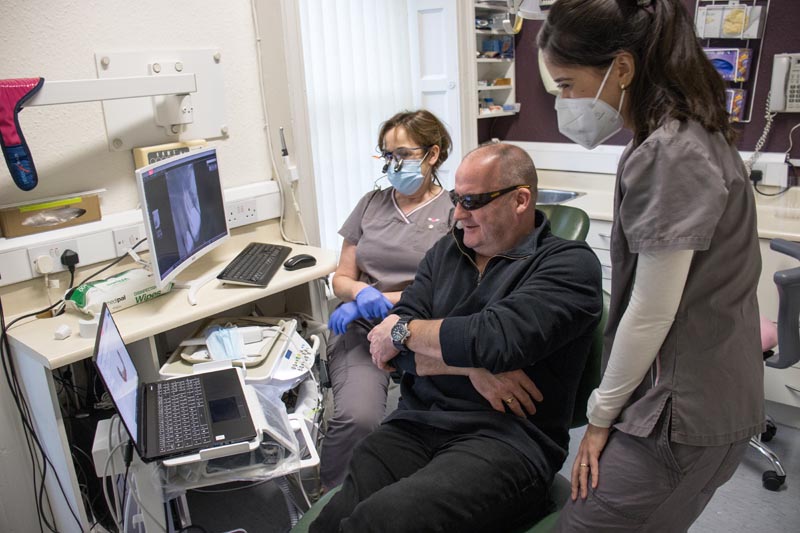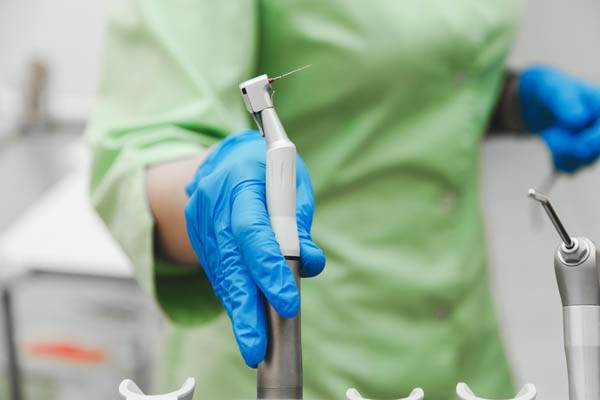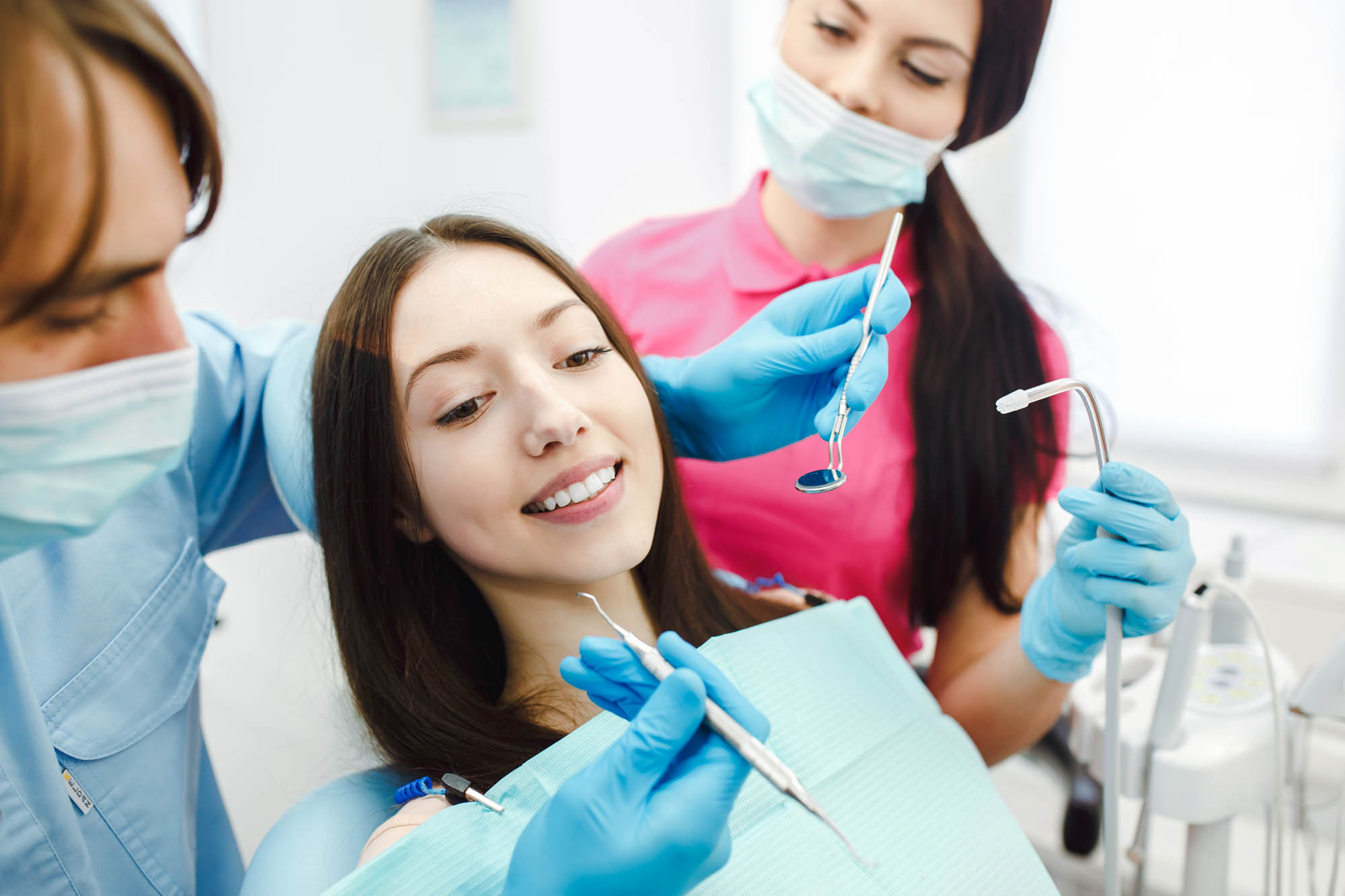Tooth Extractions
Keep your teeth and oral health in top condition by regular dental checkups
What is a Tooth Extraction?
Tooth extraction is a dental treatment where a tooth is removed from its place in the jaw bone.
With the help of dental X-rays, we assess the shape & contour of the tooth and its roots. Nowadays when we are extracting a tooth we aim to do so as gently as possible in order to preserve the bone around the roots of the tooth. This bone might later be required to support a dental implant.
A normal extraction is when, under copious local anaesthetic, we slowly put pressure around the circumference and gradually loosen it up in its socket and eventually we can wiggle it out. There is a sensation of pressure, but no pain.
When is a Tooth Extraction necessary?
The tooth is damaged beyond repair because of trauma or extensive tooth decay.
Advanced gum disease.
Orthodontic reasons (making space into which other teeth can be moved)
The tooth is in a poor position (for example a wisdom tooth)
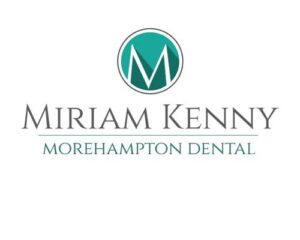
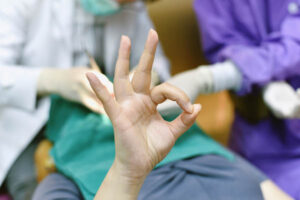
Our dentist will first take an X-ray to check the position of the tooth root and direction. We will then give you a gentle local anaesthetic injection. After the tooth has become numb, our dentist will expertly apply pressure to wiggle the tooth loose and then carefully remove the tooth. The whole process takes minutes.
- Severe tooth decay: When tooth decay has progressed so much, and the tooth cannot be saved by any means (fillings, root canals etc.), you must extract it. Severely decayed teeth often are the cause of a dental abscess. Extracting such a tooth prevents the abscess from spreading.
- Advanced gum disease: In the advanced stages of gum disease, along with swollen, red and bleeding gums, we also see a bone loss. This loss of supporting bone leads to loose teeth, which cannot be treated and such teeth need to be extracted.
- Tooth crowding to be treated with orthodontic treatment: Teeth crowding is a common problem many people face. To make space for proper alignment of teeth during orthodontic treatment, your dentist may extract one or two teeth.
- Fractured teeth: Some falls or trauma cause a fracture of the teeth in such a way that they become impossible to repair. In such a case, they need to be extracted and replaced with an artificial tooth.
Happy Patients
We always strive to ensure that all our patients leave us smiling
I was so nervous and anxious about going to the dentist after a long time … And now I am not afraid anymore and I feel very happy to have Miriam Kenny as my dentist. I recomend her 100% I was very nervous and scared when going to a dentist, because after many years without going, because of pregnancy, breastfeeding, etc., I was very scared … but Miriam is a very professional woman. I feel in very good hands. And happy to no longer fear going to the dentist! I recommend it 100%
February 12, 2019
Tooth extraction procedure
Are tooth extractions important?
A tooth may need to be extracted if it has undergone considerable damage due to decay, trauma or gum disease. Such teeth cannot be saved even with root canal treatments, and the best option is to get them removed and replaced with a dental crown, bridge or implant. Other reasons for tooth extraction include “wisdom” teeth that are unfavourably positioned and to make space for proper teeth alignment during orthodontic treatment. At our clinic, we make sure the extraction is as gentle as possible, performed under generous local anesthesia and using precise techniques.
- Need Assistance?
Practice Plan
frequently Asked Questions
No, tooth extraction does not hurt. It is performed after giving adequate amounts of local anaesthesia, which numbs the tooth and surrounding areas. You will feel pressure as your dentist gently but firmly gradually loosens & then wiggles out the tooth.
Yes, tooth extraction is generally safe for everybody. However, you should always discuss your health problems with your doctor before starting the procedure. People with high blood pressure and diabetes must have their blood pressure and sugar levels under control. People with heart problems, who take blood-thinning medicines, MIGHT need to stop their medication a couple of days before the extraction to prevent excessive bleeding. Please do NOT stop your medication until you have discussed this with the dentist.
A straightforward extraction visit is usually completed within 30 minutes. Teeth requiring a surgical removal will require a visit of just over 1 hour.
Yes.
With good healing the soft gum tissue will have closed over the socket after 7 days, and the bone tissue beneath the gum will have reformed within 6-8 weeks.
Technically, you can fly after your tooth extraction. However, we recommend you wait at least 24-48 hours before travelling to prevent discomfort.
For the first 2-3 days, you should sleep with your head elevated. This sleeping position helps the blood flow away from the extraction site and reduce swelling. You can sleep on your side but avoid sleeping on your back.
No, you should not drink alcohol on the day of your tooth extraction as alcohol can interfere with the healing of the extraction wound. It might break up the blood clot forming in the extraction socket, which is vital for recovery and in turn, aggravate bleeding.
You should delay at least 24 hours before smoking after tooth extraction. If you do, your extraction socket may not heal well, and you could even get a painful condition called dry socket.
You can drink cold coffee after your tooth extraction but abstain from having hot coffee or tea for at least a few hours – until the numbness has worn off.
Before having a tooth extraction, always give a detailed medical history to your dentist. Tell them all the health problems you have and the medications you are taking. This information helps your dentist decide if the tooth extraction is safe for you. Unless the dentist has advised differently, DO take your usual medications, such as high blood pressure medicine before coming in for the extraction. Also, avoid smoking right before tooth extraction.
Your dentist will give you some cotton gauze packs to bite down for a while after your tooth extraction. The pressure will stop the bleeding. You can alternatively remove the gauze piece and bite down on a wet tea bag. Avoid rinsing or spitting.
Opt for a soft diet after your tooth extraction. You can have soup, mashed potatoes, yoghurt, smoothies etc. Avoid spicy foods and anything that needs to be chewed a lot.
Avoid eating toast or crusty bread immediately after your tooth extraction. After 48 hours, you can have soft bread or bread dipped in liquids (like tea or coffee).
Miriam Kenny Morehampton Dental Practice
Your Trusted Dental Clinic
- About Us
- COVID-19 Prepared
- Why Choose Us
Our practice is based on providing a high standard of modern dentistry in a friendly, professional manner. It is our mission to help our patients maintain their teeth and a healthy mouth for their lifetime.
Our entire team is committed to this ideal. As a result, a high percentage of our business is from returning patients and referrals of their family and friends. We welcome and are grateful for these referrals.

With the current Covid-19 pandemic we are paying particular attention to our normal cross-infection practices, but in addition, we are keeping the practice well ventilated (it may feel cold) and we use a special Fogging machine with Hypochlorous acid (HOCL) which is an all-natural antimicrobial agent made from salt and water by an electrolysis unit. Fogging of each surgery is carried out between patients after any treatment involving an aerosol.
To reduce aerosol production during procedures with the dentist we most often use a little device called a rubber dam —.50 this isolates the immediate teeth we are working with & protects the back of mouth. During hygienist treatment we are using an extra suction device outside of the mouth, this also reduces aerosol production.
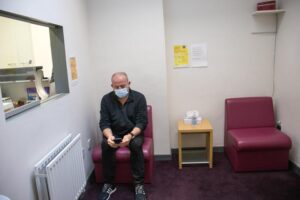
The practice is owned & directed by Miriam Kenny and as the business owner and the principal healthcare professional, I am primarily interested in providing evidence-based dental healthcare. This means my priority is to help my dental patients to maintain their own natural teeth in a healthy mouth for their lifetime.
We can help improve your smile – we offer a range of options depending on what is most appropriate for you, from tooth whitening to composite bonding to ceramic veneers, crowns and bridges.

How Much do a Dental Extraction cost?
At Miriam Kenny Morehampton Dental Practice we aim to provide state of the art, quality affordable dental treatment to all.
It was with this in mind that we created our affordable dental plans, which helps us to keep your teeth, gums and oral health in tip-top shape.
With our Practice Plan, you will attend every 6 months with the hygienist and once yearly for your dental examination and have no fees to pay at these visits. The cost of these visits is covered by your monthly subscription – this is as low as €14.50 or €21, depending on whether you qualify for the “PRSI” benefit.
| Treatment | Member of maintenance plan | Non-member of plan |
|---|---|---|
| White Tooth Filling – 1 Surface | €120 | €150 |
| White Tooth Filling – 2 Surfaces | €160 | €190 |
| White Tooth Filling – 3 Surfaces | €250-€280 | €300-€320 |
| Root Canal Treatment – Single Root | €450 | €500 |
| Root Canal Treatment – Premolar (2 roots) | €550 | €600 |
| Root Canal Treatment – Molar | €650 | €700 |
Other Treatments you may consider
We offer dental hygiene services like professional teeth cleaning and polishing to prevent buildup of plaque.
Large cavities, tooth fractures/cracks, and bacterial entry under old restorations/fillings all call for a root canal treatment to save the tooth from being extracted.
Severe tooth pain, injury to the face and/or mouth, a cracked tooth, a fallen out tooth, a tooth abscess or uncontrollable bleeding from the mouth; these are all dental emergencies that need to be taken care of at the earliest.

